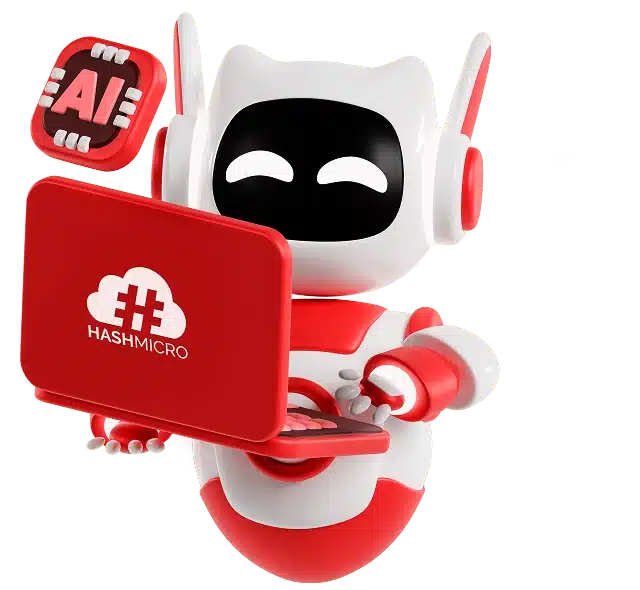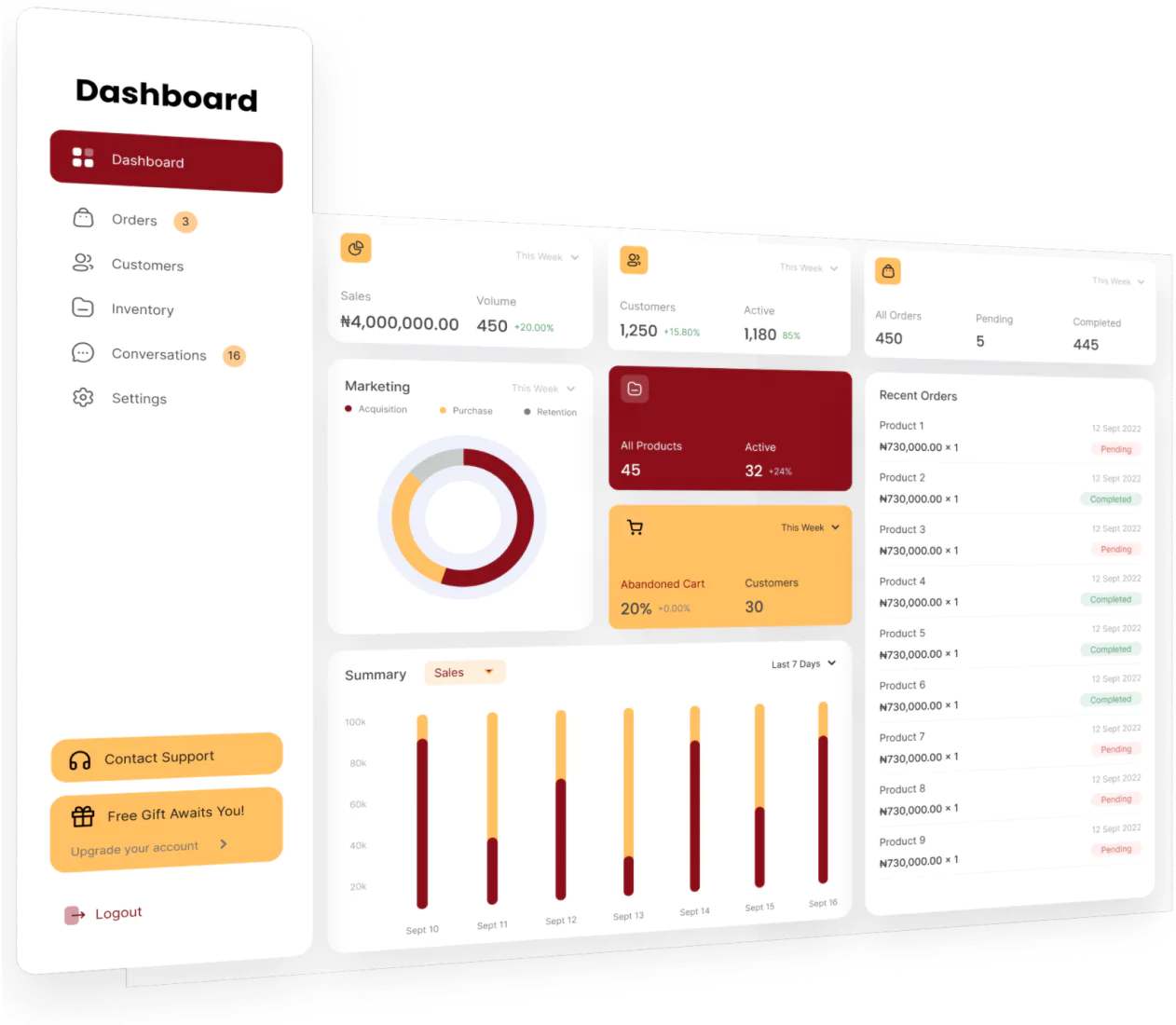Imagine a smarter, faster, and more strategic procurement process. AI procurement software leverages artificial intelligence to automate workflows, enhance data driven decision making, and optimize supplier management.
For business leaders and executives, integrating AI into procurement is not just an innovation. It is necessary to drive efficiency, reduce costs, and strengthen supply chain resilience.
With Hashy AI, your organization can streamline purchasing operations, minimize risks, and make more informed decisions with real-time data analytics.
Understanding its benefits and future trends is crucial for staying ahead in an increasingly competitive landscape. Basahin upang tuklasin ang mga pangunahing benepisyo at mga makabagong teknolohiyang humuhubog sa industriya.
Key Takeaways
|
Table of Contents

What is AI Procurement?
AI procurement is the application of artificial intelligence to streamline, automate, and enhance procurement processes, enabling businesses to make data driven purchasing decisions with greater accuracy and efficiency.
By leveraging AI powered analytics, machine learning, and automation companies can optimize supplier selection, contract management, and spending analysis while minimizing risks and reducing operational costs.
This technology enhances visibility across the supply chain, detects patterns in purchasing behavior, and predicts future procurement needs, ensuring better budget control and supplier negotiations.
Additionally, AI procurement helps organizations comply with regulations, eliminate manual inefficiencies, and improve overall supply chain resilience, making procurement a more strategic in business operations.
Need to know!
Optimize procurement with AI-driven insights. Hashy AI automates supplier selection, tracks spending, and improves decision-making for smarter purchasing. Get a free demo now!

Get a Free Demo Now!
Examples of Procurement AI
AI is transforming procurement across various industries by automating tasks, improving decision-making, and enhancing supply chain efficiency. Many businesses have already integrated AI-driven solutions to optimize supplier management, cost analysis, and risk assessment.
Below are some key examples of how AI is being used to revolutionize procurement processes.
- Machine learning spending classification, a key application of AI for finance helps businesses categorize and analyze procurement expenses with greater accuracy and efficiency. By leveraging AI-driven algorithms, this technology automatically classifies spending patterns, detects anomalies, and provides deeper insights into cost allocation. It reduces manual errors, improves budget control, and enables companies to identify cost-saving opportunities while ensuring compliance with financial policies.
- Capturing supplier or market data is crucial for making informed procurement decisions. AI-powered tools continuously collect, analyze, and update data on supplier performance, market trends, pricing fluctuations, and risk factors. By leveraging this real-time information, businesses can identify the best suppliers, anticipate market changes, and negotiate better contracts, ultimately improving procurement efficiency and cost savings.
- Anomaly detection in procurement AI helps identify unusual patterns or inconsistencies in purchasing data that could indicate errors, fraud, or inefficiencies. By analyzing historical transactions and supplier behavior, AI can flag suspicious activities such as unexpected price changes, duplicate invoices, or unauthorized purchases. This proactive approach enables businesses to minimize financial risks, ensure compliance, and maintain a more transparent and secure procurement process.
Types of Procurement AI
AI is transforming procurement through various technologies that enhance efficiency, accuracy, and decision making. Different types of AI solutions are used to automate tasks, analyze data, and optimize supplier management. Below are some key types of procurement AI that are reshaping the industry.
1. Machine learning for data analysis
Machine learning enables procurement teams to analyze vast amounts of data quickly and accurately. By identifying spending patterns, supplier performance trends, and cost-saving opportunities, AI-driven analytics help businesses make informed procurement decisions.
This technology also enhances risk management by detecting potential supply chain disruptions before they occur.
2. Natural Language Processing (NLP) for contract management
NLP allows procurement teams to efficiently manage contracts by automatically extracting key terms, identifying risks, and ensuring compliance. AI-powered systems can analyze large volumes of contract documents, detect discrepancies, and even suggest optimal negotiation strategies.
This reduces manual effort, minimizes errors, and speeds up the contract review process.
3. Robotic Process Automation (RPA) for procurement workflows
RPA automates repetitive procurement tasks such as purchase order processing, invoice processing with AI, invoice matching, and approval workflows.
By reducing manual intervention, RPA enhances efficiency, eliminates human errors, and allows procurement professionals to focus on more strategic activities. This leads to faster turnaround times and more streamlined procurement operations.
4. Predictive analytics for demand forecasting
Predictive analytics leverages historical data and market trends to anticipate future procurement needs. This helps businesses optimize inventory levels, reduce excess stock, and prevent supply shortages.
By integrating AI for inventory management, companies can make more accurate, data-driven purchasing decisions, enhancing operational efficiency and reducing procurement costs.
Benefits of AI in Procurement
AI is revolutionizing procurement by enhancing efficiency, reducing costs, and improving decision-making. By automating repetitive tasks and providing data-driven insights, AI helps businesses optimize supplier management, minimize risks, and increase overall procurement accuracy.
Below are some key benefits of AI in procurement and how they are transforming the industry.
1. Increased efficiency and automation
AI automates time-consuming procurement tasks such as purchase order processing, invoice matching, and contract management. This reduces manual workload, speeds up operations, and allows procurement teams to focus on more strategic initiatives.
2. Cost reduction and spend optimization
By analyzing procurement data, AI identifies cost-saving opportunities, eliminates unnecessary spending, and ensures better budget control. AI-driven insights help businesses negotiate better deals with suppliers and avoid hidden costs.
3. Improved supplier management
AI helps businesses assess supplier performance, predict potential risks, and ensure compliance with contract terms. By leveraging AI analytics, companies can select the most reliable vendors and strengthen supplier relationships.
4. Enhanced risk management and fraud detection
AI detects anomalies in procurement transactions, such as unauthorized purchases or fraudulent invoices. This helps businesses mitigate financial risks, prevent fraud, and ensure compliance with procurement regulations.
5. Data driven decision making
AI provides real-time procurement insights by analyzing historical trends, market conditions, and supplier data. These insights enable businesses to make informed purchasing decisions, optimize procurement strategies, and anticipate future demands.
Challenges of AI in Procurement
Implementing AI in procurement brings many benefits but comes with several challenges. Businesses must address these challenges to maximize AI’s potential and avoid setbacks. Some key issues include:
1. Data quality and availability
AI relies on accurate and well-structured data to generate useful insights. However, many companies struggle with outdated, incomplete, or scattered procurement data.
AI may produce inaccurate predictions without high-quality data, leading to poor decision-making. Additionally, some businesses lack the infrastructure to manage and process large volumes of data effectively.
2. Integration with existing systems
Many companies use outdated procurement systems that may not be compatible with AI. Integrating AI into these legacy systems can be complex, costly, and time-consuming.
It often requires system upgrades or modifications, which can disrupt daily operations and demand significant IT resources.
3. Lack of skilled talent
AI in procurement requires professionals with expertise in AI technology and procurement processes. However, finding experts with this combined skill set is difficult.
Companies may need to invest in extensive employee training or hire external specialists, which can be expensive and slow down AI adoption.
4. Cost of implementation
Implementing AI involves high initial costs for software, system integration, and employee training. Additionally, businesses must account for ongoing maintenance, updates, and cybersecurity measures.
Small and medium-sized enterprises (SMEs) may struggle to justify these costs, especially if the return on investment (ROI) is uncertain in the short term.
5. Ethical and Compliance concerns
AI must comply with legal and ethical standards in procurement. Issues such as biased algorithms, lack of transparency in decision-making, and data privacy risks can create significant challenges.
Key Applications of AI in Procurement
Despite the challenges, AI transforms procurement by improving efficiency, reducing costs, and enhancing decision-making.
Businesses that leverage AI can automate repetitive tasks, gain deeper insights from data, and optimize supplier management. Below are some of the key applications of AI in procurement and how they are reshaping the industry.
- The impact of AI in procurement: AI is transforming procurement by increasing efficiency, reducing costs, and enhancing decision-making. Embracing AI helps businesses stay competitive in today’s fast-changing market.
- Risk management: AI identifies procurement risks, such as supplier issues, market fluctuations, and compliance violations. It enhances fraud detection and enables proactive risk mitigation, reducing financial and reputational threats.
- Contract management: AI automates contract review, extracting key terms and clauses to reduce manual effort. This improves compliance, minimizes risks, and allows procurement teams to focus on strategic priorities.
- Spend analytics and cost optimization: AI helps procurement teams analyze spending patterns, supplier performance, and cost-saving opportunities. By leveraging predictive analytics, businesses can optimize cash flow, improve spend management, and negotiate better contracts.
- Supplier selection and management: AI streamlines supplier evaluation by analyzing financial stability, performance, and compliance records. It enables more targeted sourcing, risk assessment, and compliance monitoring while optimizing contract negotiations to strengthen supplier relationships.
Common Misconceptions of AI in Procurement

1. AI will replace human procurement teams
Many believe that technology will replace jobs in procurement, but it is actually a tool designed to support professionals, not replace them. It streamlines routine tasks like data entry, supplier comparisons, and contract monitoring, allowing teams to focus on more strategic responsibilities.
However, human expertise is still needed for decision-making, relationship management, and handling complex negotiations.
2. AI can operate without human oversight
AI systems are powerful, but they are not completely autonomous. To function effectively, they require proper setup, regular monitoring, and adjustments.
Procurement professionals must review AI-generated insights to ensure accuracy and make informed decisions, as AI cannot fully understand business context or unexpected market changes.
3. AI delivers immediate cost savings
While AI can improve efficiency, expecting instant cost savings is unrealistic. AI’s benefits come from long-term improvements in process optimization, supplier selection, and risk management.
Companies must invest time in training AI models, refining data quality, and integrating AI workflow automation before seeing measurable financial benefits.
4. AI Is only useful for large corporations
Many assume AI-driven procurement solutions are only accessible to big companies with large budgets. However, AI tools are becoming more affordable and scalable, making them beneficial for small and medium-sized businesses.
AI can help these businesses streamline sourcing, identify cost-saving opportunities, and improve supplier relationships without requiring extensive resources.
5. AI eliminates all procurement risks
AI can enhance risk management by analyzing supplier data, predicting potential disruptions, and identifying compliance issues. However, it cannot completely eliminate risks.
Market fluctuations, supplier failures, and geopolitical events still require human judgment and strategic planning. AI should be seen as a support system rather than a complete solution to procurement challenges.
Best Practices for Implementing Procurement AI
Integrating AI into procurement requires more than just adopting new technology it demands a strategic approach. By following best practices, businesses can maximize AI’s potential, streamline processes, and enhance decision-making while avoiding common pitfalls.
- Define clear goals and expectations: Before adopting AI, businesses should establish specific objectives, such as cost reduction, supplier optimization, or process efficiency. Clear goals help ensure AI aligns with business needs and delivers measurable benefits.
- Ensure high quality and well structured data: AI relies on accurate and organized data. Companies must clean, standardize, and centralize procurement data to improve AI’s effectiveness. Poor data quality can lead to inaccurate insights and unreliable decision-making.
- Start with a pilot project before scaling: Implementing AI gradually reduces risks and allows businesses to refine their approach. Starting with a small-scale pilot helps teams understand AI’s capabilities, identify challenges, and make improvements before expanding its use.
- Train procurement teams for AI integration: Technology is most effective when employees know how to use it. Businesses should invest in training programs to help teams understand AI tools, interpret insights, and integrate them into decision-making processes.
- Maintain human oversight and strategic control: AI can improve procurement processes, but human expertise remains crucial. Professionals should assess system-generated recommendations, handle complex decision-making, and uphold ethical and strategic practices.

The Future of Procurement with AI
AI is transforming procurement, making processes more efficient, data-driven, and strategic. In the future, AI will play an even greater role in automating routine tasks, predicting market trends, and enhancing supplier relationships.
With advancements in machine learning and predictive analytics, businesses will be able to make faster and more informed purchasing decisions.
Moreover, AI-powered procurement, alongside AI in manufacturing, will help companies optimize operations by minimizing risks and identifying potential disruptions before they happen. As AI technology continues to evolve, procurement teams will transition from manual processes to more strategic roles, focusing on supplier collaboration, sustainability, and long-term value creation.
However, to maximize its full potential, businesses must invest in high-quality data, proper training, and ethical practices.
By embracing AI as a support system rather than a replacement for human expertise, companies can drive innovation, improve efficiency, and stay competitive in a rapidly changing market.
Simplify Your Business Procurement with Hashy by HashMicro

Managing procurement can be complex, especially when dealing with multiple suppliers, purchase orders, and approvals. Hashy by HashMicro offers an intelligent and automated procurement solution to simplify your purchasing process, reduce manual work, and improve decision-making.
With its advanced features, businesses can gain better control over procurement, ensuring efficiency, cost savings, and compliance with company policies.
- PO, RFQ & PR management: Easily create and manage Purchase Orders (PO), Requests for Quotation (RFQ), and Purchase Requests (PR) in one centralized system. Automating these processes helps reduce errors, speed up procurement, and ensure smooth supplier communication.
- PR approval management: Simplify approval workflows by setting up automated purchase request approvals based on predefined rules. This feature ensures that all procurement activities comply with company policies while reducing approval bottlenecks.
- Online portal for suppliers: Enable suppliers to submit quotations, track orders, and communicate seamlessly through a dedicated online portal. This enhances collaboration, improves transparency, and reduces manual follow-ups.
- Vendor/supplier rating: Evaluate supplier performance based on key factors such as price, quality, and delivery time. This feature helps businesses choose the most reliable vendors and maintain strong supplier relationships.
- Blanket order management: Manage long-term purchase agreements efficiently by automating recurring orders with preferred suppliers. This helps businesses secure better pricing, ensure stock availability, and streamline procurement planning.
- Landed cost calculation: Accurately calculate the total cost of purchased goods, including shipping, taxes, duties, and other fees. This ensures precise budgeting, cost control, and profitability analysis.
Conclusion
By automating routine tasks, improving supplier management, and providing real-time insights, AI helps companies streamline operations and stay ahead in a competitive market.
As AI technology evolves, businesses that embrace AI-powered procurement will gain a strategic advantage, reducing risks and optimizing spending. However, successful implementation requires high-quality data, proper integration, and ongoing human oversight.
If you want to enhance your procurement process with AI, HashMicro offers a comprehensive solution tailored to your business needs. Experience the benefits of automated procurement, real-time analytics, and seamless supplier management with Hashy by HashMicro. Start with a free demo today and discover how AI can transform your procurement strategy.




































